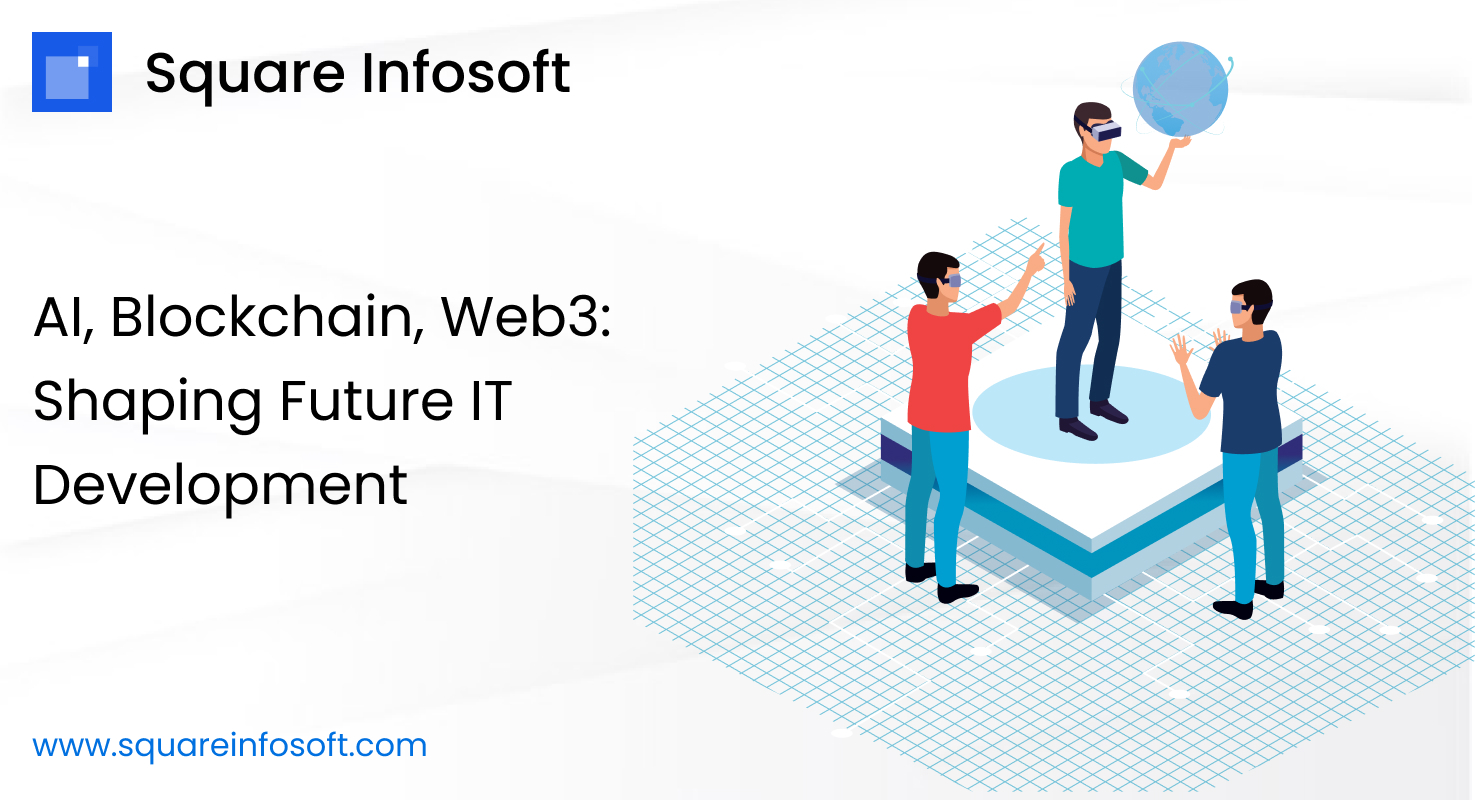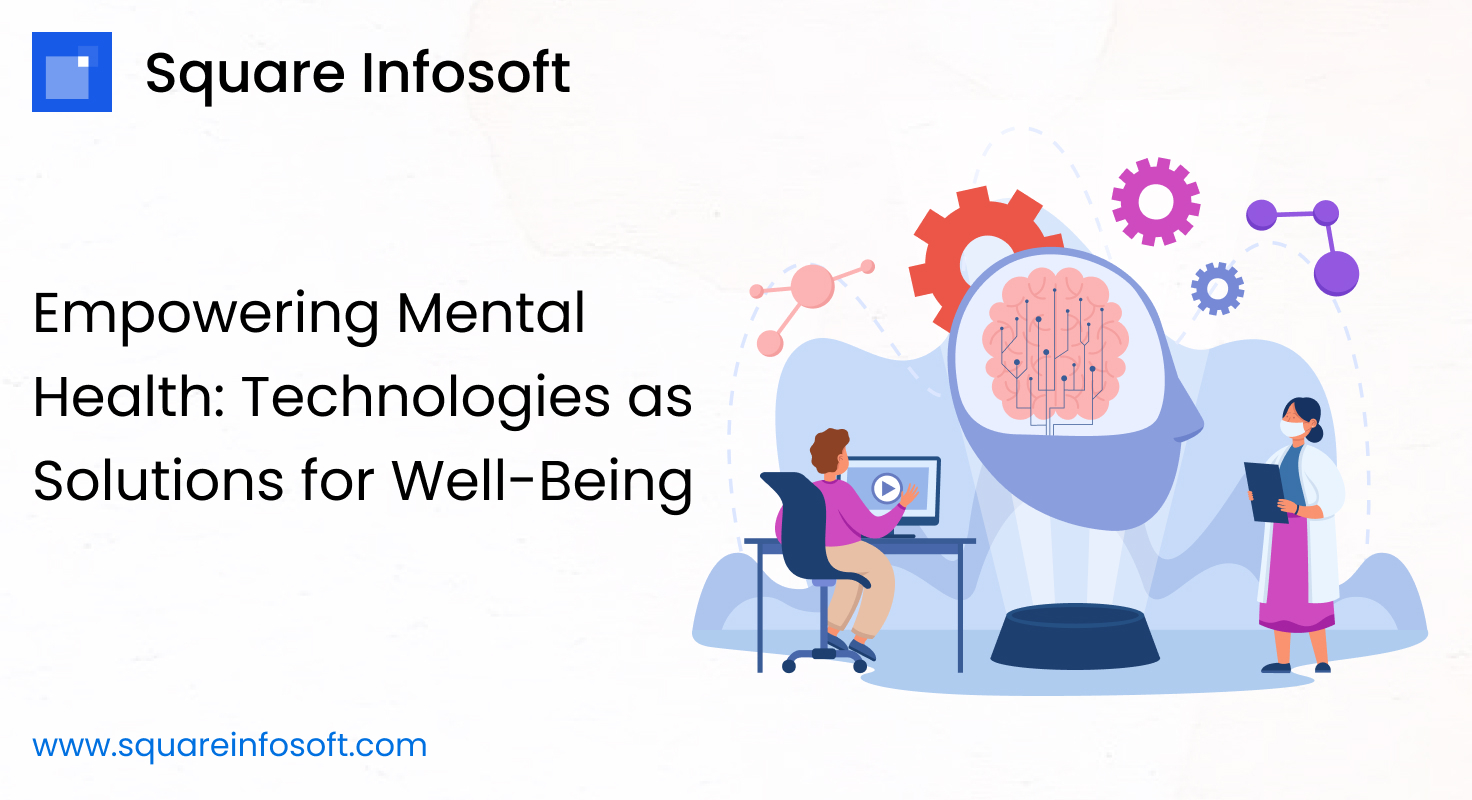In today’s rapidly evolving technological landscape, several transformative trends are emerging as key drivers of innovation: Artificial Intelligence (AI), Blockchain, and Web3. These cutting-edge technologies are revolutionizing IT development, reshaping digital interactions, and paving the way for a more decentralized and intelligent future. Let’s delve deeper into each of these trends, exploring their key features, advantages, and potential disadvantages.
Artificial Intelligence (AI)
Key Features:
- Machine Learning: AI systems utilize machine learning algorithms to analyze data, identify patterns, and make predictions or decisions without explicit programming.
- Natural Language Processing (NLP): NLP enables machines to understand and interpret human language, facilitating interactions through voice commands, chatbots, and virtual assistants.
- Computer Vision: AI-powered computer vision systems can analyze and interpret visual information, enabling applications such as image recognition, object detection, and video analysis.
Advantages:
- Enhanced User Experience: AI technologies enable personalized interactions, predictive recommendations, and real-time assistance, enhancing the overall user experience.
- Data-driven Insights: AI algorithms can analyze large datasets to uncover valuable insights, trends, and patterns, empowering businesses to make data-driven decisions.
- Automation and Efficiency: AI-driven automation streamlines repetitive tasks, accelerates development processes, and improves efficiency, allowing developers to focus on higher-value tasks.
- Improved Decision Making: AI systems can process and analyze complex data sets faster and more accurately than humans, leading to better decision-making in various domains.
Disadvantages:
- Data Privacy Concerns: AI systems rely on vast amounts of data, raising concerns about data privacy, security, and potential misuse of personal information.
- Bias and Fairness: AI algorithms may exhibit bias or discrimination based on the data they are trained on, leading to unfair outcomes or perpetuating existing societal biases.
- Lack of Transparency: Deep learning models can be complex and opaque, making it challenging to interpret their decisions or understand how they arrive at specific conclusions.
- Ethical Considerations: AI raises ethical questions related to accountability, transparency, and the ethical use of technology, requiring careful consideration and oversight.
Blockchain
Key Features:
- Decentralization: Blockchain is a decentralized, distributed ledger technology that records transactions across a network of computers, eliminating the need for intermediaries.
- Immutability: Once recorded on the blockchain, data cannot be altered or tampered with, providing a tamper-resistant and immutable record of transactions.
- Transparency: Transactions on the blockchain are transparent and verifiable by all participants, enhancing trust, accountability, and auditability.
- Smart Contracts: Smart contracts are self-executing contracts with the terms of the agreement directly written into code, automating and enforcing contractual agreements.
Advantages:
- Enhanced Security: Blockchain technology offers enhanced security through cryptographic encryption, decentralization, and consensus mechanisms, making it resistant to hacking or unauthorized access.
- Transparency and Trust: The transparent and immutable nature of blockchain promotes trust and transparency among participants, reducing the need for intermediaries and mitigating the risk of fraud.
- Decentralized Applications: Blockchain enables the development of decentralized applications (DApps) that operate on a peer-to-peer network, offering new opportunities for innovation and disruption.
- Tokenization and Digital Assets: Blockchain facilitates the tokenization of assets, enabling the creation and management of digital tokens representing ownership rights, securities, or other forms of value.
Disadvantages:
- Scalability Challenges: Blockchain scalability remains a significant challenge, with limitations on transaction throughput, network congestion, and latency hindering widespread adoption for high-volume applications.
- Regulatory Uncertainty: The regulatory landscape surrounding blockchain and cryptocurrencies is still evolving, with legal and regulatory challenges varying by jurisdiction and posing compliance risks for businesses.
- Energy Consumption: Proof-of-Work (PoW) consensus mechanisms used in many blockchain networks require significant computational power and energy consumption, raising concerns about environmental sustainability.
- Interoperability and Standards: Lack of interoperability and industry standards hinders seamless integration and interoperability between different blockchain platforms and networks.
Web3
Key Features:
- Decentralization: Web3 aims to decentralize the internet, moving away from centralized platforms and intermediaries towards peer-to-peer networks and protocols.
- Privacy and Data Ownership: Web3 prioritizes user privacy and data ownership, empowering individuals to control access to their personal information and data.
- Interoperability: Web3 promotes interoperability between different protocols, platforms, and applications, enabling seamless data exchange and collaboration across the decentralized web.
- Tokenization and Incentives: Web3 introduces tokenization and incentives mechanisms to incentivize user participation, contribution, and engagement within decentralized ecosystems.
Advantages:
- User Sovereignty: Web3 empowers users with greater control, ownership, and sovereignty over their digital identities, data, and online interactions, reducing reliance on centralized authorities and platforms.
- Censorship Resistance: Decentralized protocols and platforms in Web3 are censorship-resistant, enabling freedom of expression, open access, and uncensored communication without fear of censorship or surveillance.
- Innovation and Disruption: Web3 fosters innovation and disruption by providing a fertile ground for experimentation, collaboration, and the development of decentralized applications, protocols, and ecosystems.
- Trustless Transactions: Web3 enables trustless transactions through decentralized networks, smart contracts, and cryptographic mechanisms, reducing the need for intermediaries and promoting trust and transparency.
Disadvantages:
- Usability and Adoption: User experience and adoption remain significant challenges for Web3 applications, with complex user interfaces, technical barriers, and a lack of mainstream awareness hindering widespread adoption.
- Scalability and Performance: Scalability remains a key challenge for Web3 platforms and networks, with limitations on transaction throughput, latency, and network congestion inhibiting mass adoption for high-volume applications.
- Regulatory and Compliance Risks: The regulatory landscape surrounding Web3 technologies is still evolving, with legal and regulatory uncertainties posing compliance risks for businesses and developers.
- Security and Risks: Web3 introduces new security risks and vulnerabilities, including smart contract bugs, network attacks, and token-related risks, requiring robust security measures, auditing, and risk management practices.
Conclusion
The convergence of Artificial Intelligence (AI), Blockchain, and Web3 represents a seismic shift in the landscape of IT development, ushering in a new era of innovation, decentralization, and intelligent digital interactions. These transformative technologies offer a plethora of opportunities for businesses, developers, and users alike, with each bringing its own set of unique capabilities and advantages.
AI, with its ability to analyze vast datasets, provide personalized experiences, and automate tasks, is revolutionizing how we interact with technology and make decisions. However, it also presents challenges related to data privacy, bias, and ethical considerations that must be carefully addressed.
Blockchain technology, with its decentralized and immutable ledger, is transforming industries by enhancing security, transparency, and trust in digital transactions. Despite its potential, challenges such as scalability, regulatory uncertainty, and energy consumption remain significant hurdles to overcome.
Web3, the decentralized web, holds promise for empowering users with greater control over their data, fostering innovation, and promoting censorship resistance. Yet, usability, scalability, regulatory, and security concerns pose obstacles to widespread adoption and integration into mainstream applications.
As we navigate the complexities and opportunities presented by AI, Blockchain, and Web3, it is crucial to approach development with a focus on collaboration, innovation, and responsible practices. By addressing challenges, mitigating risks, and embracing ethical considerations, we can harness the full potential of these technologies to create a more inclusive, transparent, and resilient digital future.




